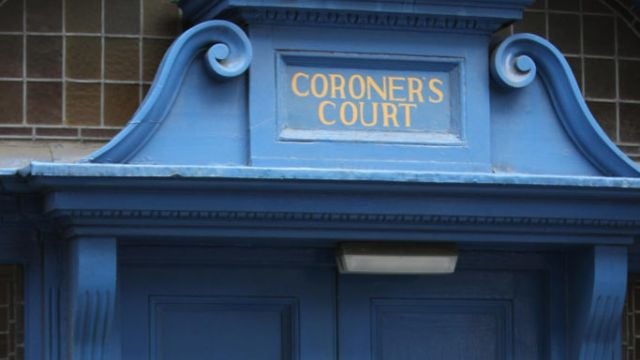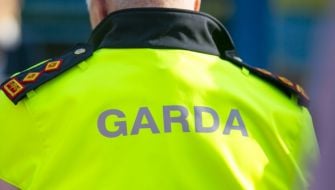A young Dublin girl who took her own life was being bullied by other children in her school about her weight, an inquest has heard.
The family of Sophia Gray has called for greater efforts to be made to tackle the problem of cyberbullying given the background to how she ended her life two years ago.
Sophia (13) was discovered with a ligature around her neck in the bedroom of her home at Wellview Terrace, Mulhuddart, Co Dublin on May 6th 2021.
Her mother, Charlene Gray, who was pregnant with twins at the time of her daughter’s death, provided a harrowing statement to a sitting of Dublin District Coroner’s Court about how she discovered Sophia’s body after becoming alarmed when she was not getting up to go to school.
Weight
Crying uncontrollably as she answered questions from coroner Clare Keane, she recounted how her daughter started becoming concerned about her weight around the time of her confirmation about a year before her death.
Ms Gray said her daughter’s school, which is located in Dublin city centre, also became aware around the same time that she had stopped eating her lunches.
The inquest heard the schoolgirl was referred to the Children and Adolescent Mental Health Services in Blanchardstown as an urgent priority but was told that she would have to wait around six months for an appointment.
Ms Gray said her family had arranged for Sophia to see a psychiatrist privately because of their concerns, although her daughter was “very good at hiding stuff” about how she was feeling.
She recalled that Sophia had been watching one of her favourite programmes, Friends, on TV on the evening before her death before going to her room at around 9pm.
She outlined how she would normally check on Sophia before going to bed herself but did not that evening as they had been annoyed with each other because her daughter had not gone to the shop to get messages for her earlier.
Ms Gray said she became worried when she woke the following morning at around 7am as Sophia’s bedroom door was still closed while she would normally be getting ready to go to school at that time.
She described how she woke her partner, Karl Cahill, with her screaming when she found the bedroom door locked and got no response when she called her name.
Ms Gray recounted how her daughter’s body fell to the floor when they eventually managed to open the door,
She described how she had brought Sophia and her daughter’s boyfriend on a trip shortly before her death. “She said it was the happiest day of her life,” Ms Gray.
She also told the inquest that she had noticed marks on Sophia’s legs in May 2021 and when questioned her daughter had promised it would not happen again.
“She said I was the best mam in the world, and she was dead four days later. It makes no sense to me,” she remarked.
Bullying
In other evidence she said that Sophia was being bullied through text messages from a girl who was giving her “hassle.”
Ms Gray acknowledged that her daughter felt she was putting on weight, but she always reassured her that was not the case and that she “looked great.”
However, she informed the inquest that after her daughter’s death, she discovered one of her notebooks in which she appeared to write messages to herself such as “don’t eat today.”
Ms Gray said her daughter would sometimes appear “snow white” from the lack of food.
She was also aware that a boy had told her daughter to kill herself in a text message but she had thought nothing of it at the time. One message sent to Sophia about a month before her death read: “You would be hot if you were skinnier.”
In reply to questions from Dr Keane, Ms Gray said she was “100 per cent sure” that her daughter was bothered by such bullying.
“She wouldn’t have been starving herself if she wasn’t,” she replied.
Ms Gray said one of the worst things she ever did was to get a smartphone for her daughter. “Sophia was one of the strongest people I knew. That is why it is such a shock,” she observed.
She continued: “She was a good kid and no trouble. She was witty, funny and just amazing.” “This is absolutely devastating. It has broken my heart. I will never get over this,” she sobbed.
Concerns
The victim’s grandfather, Justin Gray, told the inquest that his granddaughter would not share any of her concerns with her family.
“I didn’t see any signs that she was going to do what she done,” said Mr Gray. However, he said her family were concerned about her being bullied by other pupils at her school.
Mr Gray said that one text message sent to her by someone whom she had regarded as a friend had read: “Why don’t you kill yourself, you fat c**t.”
“I’d like to see this so-and-so brought to justice and get a wrap on his knuckles,” said Mr Gray.
Fighting back tears as he gave evidence, he admitted his family were also concerned that Sophia was forcing herself to get sick after eating meals.
He expressed belief that the Covid-19 pandemic had not helped his granddaughter as she had been unable to meet other relatives on a regular basis as well as being more isolated and getting less exercise.
Mr Gray said he and his wife, Audrey, felt guilty after her death that they had not brought her to their home more often as they had done in pre-pandemic times.
The inquest heard efforts by Mr Cahill, a neighbour and paramedics to resuscitate Sophia after she was found in her bedroom were unsuccessful and she was pronounced dead at 9.48am.
Garda Emmet McGonigle told the hearing on Thursday that a note was found on a desk in Sophia’s bedroom which read: “I’m sorry – XX.”
Garda McGonigle said gardaí had been unable to examine the girl’s phone because they did not have its PIN code.
Medical records
The coroner said medical records from visits to a psychiatrist showed that Sophia had no suicidal ideation and she was described as “a happy and easy going girl” with close relationships with her mother and brother, Justin.
Dr Keane said she had been informed that CAMHS in Blanchardstown had received an unprecedented 114 referrals including one for Sophia over a four-month period in a post-Covid surge which had placed large pressure on its services.
The inquest heard the young schoolgirl’s favourite things including dancing, singing, TikTok, videos, make-up and playing chess with her grandfather.
Returning a verdict of self-inflected death, the coroner said she would not make a finding of death by suicide as there are question marks over whether children aged 13 can fully understand the consequences of their actions.
Offering her deepest condolences to Sophia’s family, Dr Keane said the circumstances of her death were shocking and devastating.
The coroner said the impact of an eating disorder and the isolation caused by the pandemic could not be denied.
Addressing the issue of messages left on Sophia’s phone, Dr Keane said there were challenges for all parents because of the widespread access that vulnerable young children had to such technology.
“We need to encourage children to think before hitting the ‘send’ button,” the coroner stated. She also said she would notify CAMHS about the circumstances of the girl’s death.
The coroner also reassured Sophia’s family that they had “not missed anything.”
Dr Keane added: “There is no way of knowing. These things are often impulsive and in a moment. It is really difficult to predict.”
Speaking after the verdict, Mr Gray expressed hope that lessons could be learnt from his granddaughter’s death.
“Something more really needs to be done to tackle the problem of cyberbullying. Everyone needs to know the danger it presents and the devastating consequences it can have,” he remarked.
If you have been affected by any of the issues raised in this article, you can freephone the Samaritans 24 hours a day for confidential support at 116 123 or email jo@samaritans.org.
You can also freephone the national Bereavement Support Line run by the HSE and Irish Hospice Foundation at 1800-80 70 77 (Monday-Friday 10am-1pm), and the contact information for a range of mental health supports is available at mentalhealthireland.ie/get-support/.
In the case of an emergency, or if you or someone you know is at risk of suicide or self-harm, dial 999/112.







